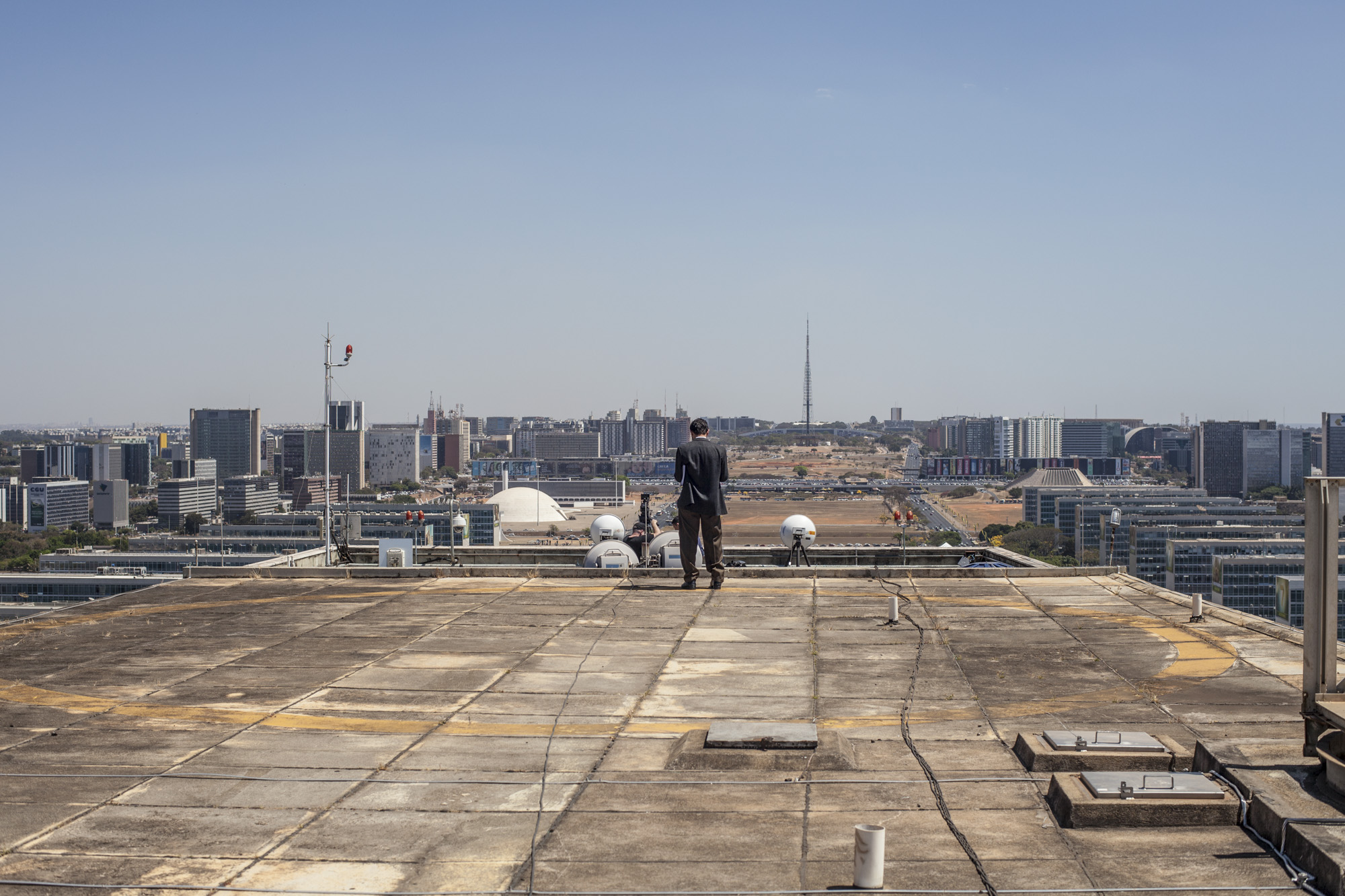
Why Make This Film Now?
Being a filmmaker today means something very different than it did a few years ago. Our current political and social climate is arguably the most divisive, chaotic, and turbulent period that anyone of our generation or younger has ever experienced in this country. As the United States of America collectively struggles to come to terms with the current political regime, we find essential to reveal and question how structures of power are constructed and performed. To that end, we have committed ourselves to teasing out the relationships between social and class systems, myth-making and nationalism, the state and its cult-like powers. There are many historical and cultural similarities between the United States of America and Brazil. Among one of the most prominent ones is that both countries, in spite of their political instabilities, reinforce the status quo through architecture (whether border walls or frontier outposts) that enable surveillance and strict regulations of urban space.
Brasília’s power and iconic status was solidified through its carefully crafted mythology as a utopian city and the promise it represented to Brazilians at the time of its founding. Although the state has successfully amassed vast economic power, Brasília is just like the rest of urban Brazil: surrounded by enormous slums, supported by poor migrant workers, and plagued by long-standing corruption. The lessons inherent to the story of Brasília, historically defined by its incipient democratic movement, have implications worldwide as nations reconcile globalization and their own economic insecurity. Structures that once represented progress, order, justice, equality and freedom, are once again being considered sanctuaries for demagogues aiming to preserve their dubious positions, and implementing policy in the name of progress and development for the benefit of the ruling elite.
One need not look further than today’s news to understand the topicality of the content of “A Machine to Live In.” With President Dilma Rousseff having been impeached after sustained protests in August of 2016 and current President Michel Temer now under scrutiny with the word “impeachment” being floated again, Brazil’s democracy remains fragile. Through casting new light on the dynamic story of the city, where of course these impeachments are now taking place, we are offering a new, historically informed perspective on this challenging moment.
Brasília’s story is also resonant with situations around the globe. As cities continually seek to modernize, many of the same mistakes are being made. Brasília teaches us that no urban environment can be converted into a futuristic monument through large-scale injections of technology or physical infrastructure meant to smooth tensions and produce harmony. There are always unforeseen repercussions. Yet, we continue to hear the distorted echo of failed utopias; the idealism of “smart cities” persists like déjà vu. As with Brasília’s construction history, we hear of thousands of migrant workers, often badly treated and manipulated with false promises, to build mega-cities in places like Saudi Arabia, Qatar, China, and many other urban spaces planned from the top-down visions of the government officials.
Our view, however, is not that utopian projects should not be attempted at all. Rather the opposite: that there is a profound need to inspire more utopian imagination. To build worlds beyond the paradigms of exploitation and corruption, and to once again engage the questions of a collective vision of the future.
Sebastian Alvarez
